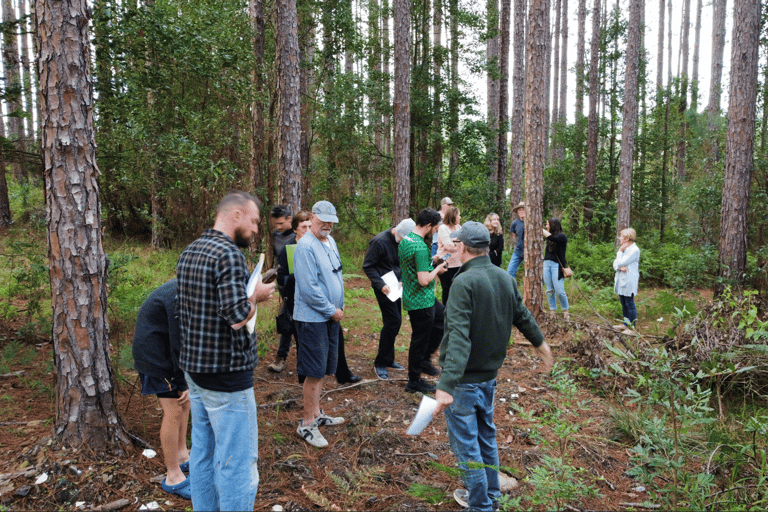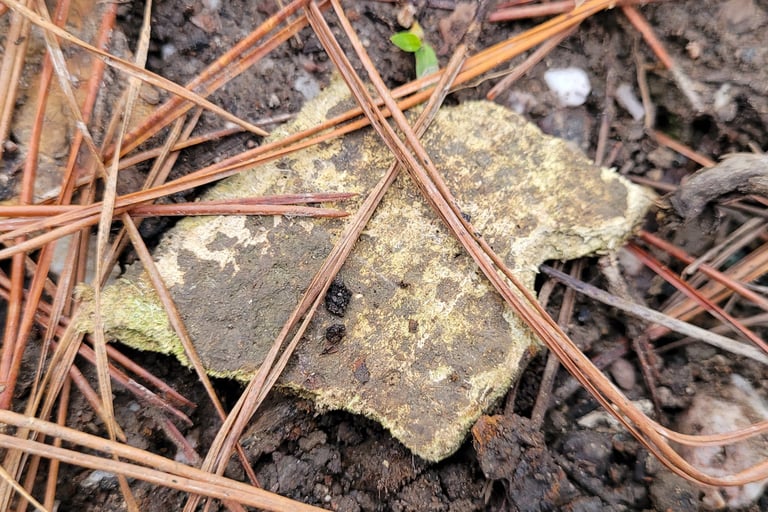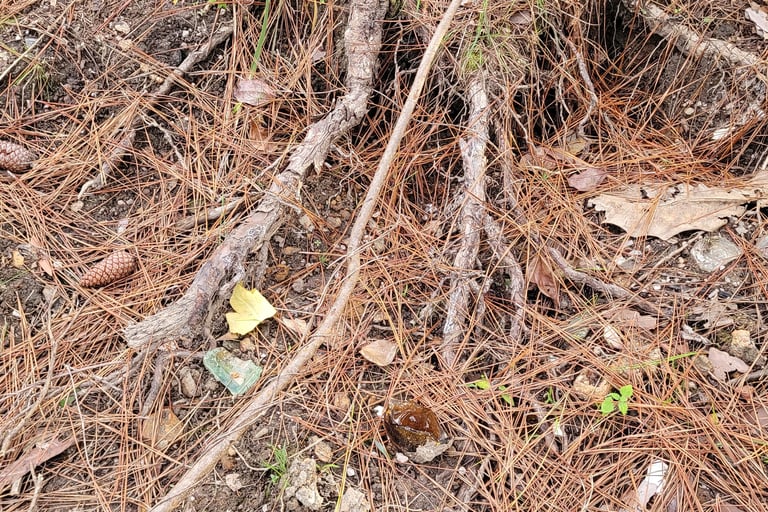The site contamination is best left in-situ under the trees. Removing it would threaten our health and be terribly expensive
There is contamination ...
most of the site is the old Cooroy dump
62 Lake Macdonald Drive is far from a pristine development site. It contains a nightsoil dump, also the 20th century Cooroy landfill (mixed general refuse dump). It contains asbestos, heavy metals, arsenic and (despite almost a dozen requests) other undisclosed contaminants. We have been told by Council that the contamination is contained to the filled areas, and further leaching has not occurred. Removal of the contamination would be very difficult, and it could only be attempted after 100% removal of a mature plantation pine forest (including the roots) - a very expensive, messy, noisy, time consuming job that would unleash torrents of stormwater to an already floodprone area during bad weather and liberate toxic asbestos fibres and heavy metals into the air. This would contaminate local homes and gardens and potentially the three local child care facilities.
The proposed Lot 1 of the site contains a former night soil dump requiring excavations to a depth of around 2m. The old Cooroy landfill is understood to lie in Lots 2 and 3.
We say: leave the contamination in where it is. Remove asbestos fragments at the surface. Maintain the mature pine forest as a sanctuary for local wildlife, and for it's valuable stormwater runoff mitigation value and asbestos fibre containment value. Site development will unleash torrents of stormwater to downstream areas that already flood in heavy or sustained rain and it will contaminate local air with dangerous toxins.


Photo 1: Residents inspecting excavated mixed landfill contamination from around the roots of the pine trees. Asbestos was found at the surface from sloppy site work.
Note: photo order may swap on mobile devices.


Photo 2: Asbestos can be found at the surface.


Photo 3: The plantation pines were planted between 1972 and 1978 into the old cooroy landfill waste. The tree roots are now embedded in the contamination, making for a costly, noisy and dirty remediation job.
